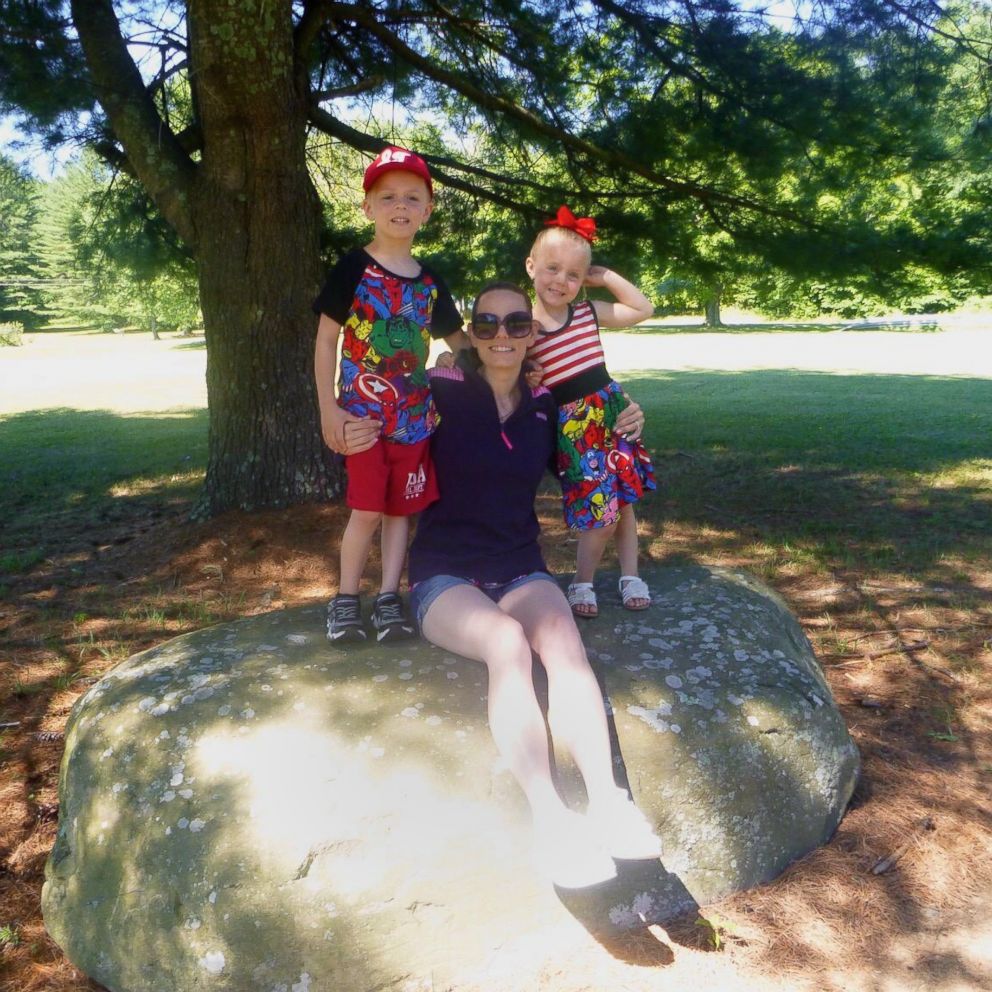3 moms share unique breastfeeding experiences: 'I was losing my mind'
From toddler nursing to stopping nursing, these moms have done it all.
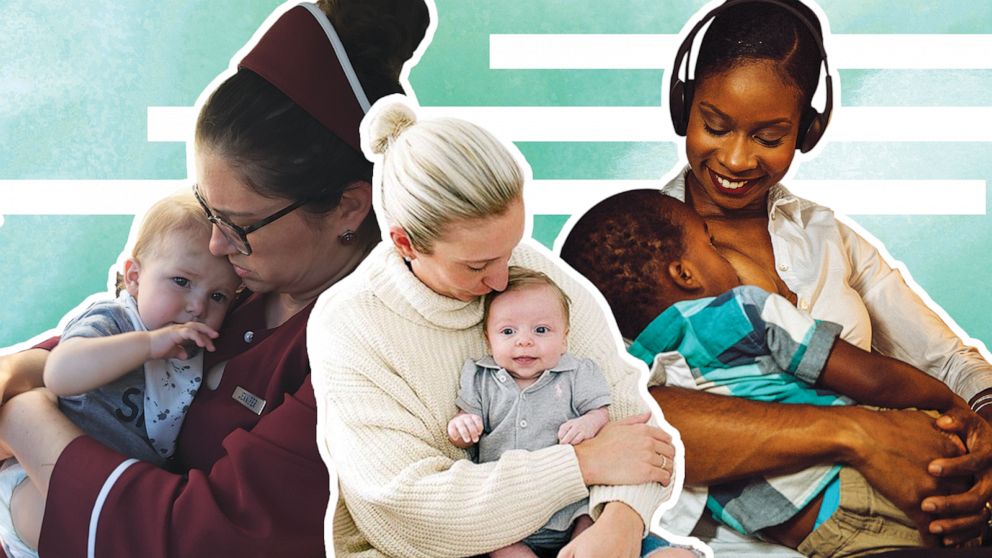
The month of August is National Breastfeeding Month in the U.S.
More than eight in 10 mothers begin breastfeeding their babies at birth, according to the CDC. The number of moms who continue to breastfeed through their child’s first birthday drops significantly, at less than a third.
Every mom has her own breastfeeding journey and her own story to tell. From feeling empowered to feeling frustrated to not wanting to breastfeed at all, every mom's experience is different.
Here are the stories of three moms from across the country.
I was losing my mind while trying to breastfeed
Julia Dzafic is the mother of a 2-year-old daughter in Stamford, Connecticut.
Before I had a baby, I always thought that I’d breastfeed for a full year or longer. I imagined sweet moments feeding my daughter, Amalia, on her rocker as she gently fell asleep in my arms. I couldn’t wait for those moments.
But what actually happened was a far cry from my daydreams. My breastfeeding story is similar to many other stories I’ve heard from friends and readers of my blog, and I share it to remind you that there is no right or wrong answer when it comes to feeding your infant.
Whatever works for you and your baby is the best answer for your family.
My daughter Amalia latched within minutes of being born and according to all of the nurses and lactation consultants at the hospital, we were in a great place. After a few weeks of breastfeeding my tiny baby girl, the initial pain and bleeding nipples (yes, that’s a thing) subsided and we were in a real groove physically.
Emotionally, it was another story. I suffered from postpartum anxiety and whenever anything went slightly wrong, I would panic. Amalia was eating well, but sometimes her schedule would change or she wouldn’t be hungry, and that sent me into an illogical but very real tailspin. And when I got anxious, my supply would dwindle.
But I kept trying to breastfeed because I felt pressure to continue. It was more of an internal pressure than anything else, to be honest. I wanted to be the kind of mom who could be strong and get through anything for my child. So despite my fears and anxieties, we kept it up.
About two months later, Amalia started throwing up whenever she breastfed versus getting pumped milk from a bottle. I talked to friends, our baby nurse and our doctor and tried every single thing they suggested.
But no matter what, bottles were better for her little tummy. So I started pumping more and breastfeeding less.
I despised pumping entirely. It hurt, I was constantly attached to my pump, I had no free time to rest during her naps, and I felt like a cow. But I kept it up until she was three months because I still felt at the time that was best for Amalia.
During this time, I was really starting to lose my mind -- to the point where whenever we tried to leave the house with her, I would have a panic attack and sob hysterically.
Then, a friend of mine told me something that really resonated: Only breastfeed as long as it makes both you and your baby feel happy.
It was as if she had given me permission to step away and make the choice I needed to make. It was like I could finally see the light for the first time in months.
As soon as I stopped breastfeeding entirely, Amalia and I were so much happier together. It felt like the pressure was off and we could just enjoy our time.
In my mind, before I had a baby, a formula-fed baby would never develop as quickly as a breastfed one. Where I got that idea, I don’t know.
But I do know that you should never ever pass judgment on a mother trying to figure out how to feed her baby in a way that works for them both. You have no idea what’s going on behind the scenes.
I hope my story might give someone out there the permission they need to hear to make a change during a tough time.
Getting support helped me breastfeed my son for three years
Malikah Garner is the mother of a 3-year-old son and 7-year-old son in Detroit.
Over seven years ago as I prepared to become a mother for the first time, I was very excited and prepared -- so I thought -- to give breastfeeding a try.
After a long and painful birth, a postpartum nurse scolded me for waiting for help from a lactation consultant and for not nursing sooner. This began my rough start to breastfeeding and exacerbated the latch problems I began to have.
A lack of support from the hospital’s lactation office (due to inadequate staffing) added to my desperation. A couple of weeks later, the pain of latching became unbearable and we decided to stop nursing.
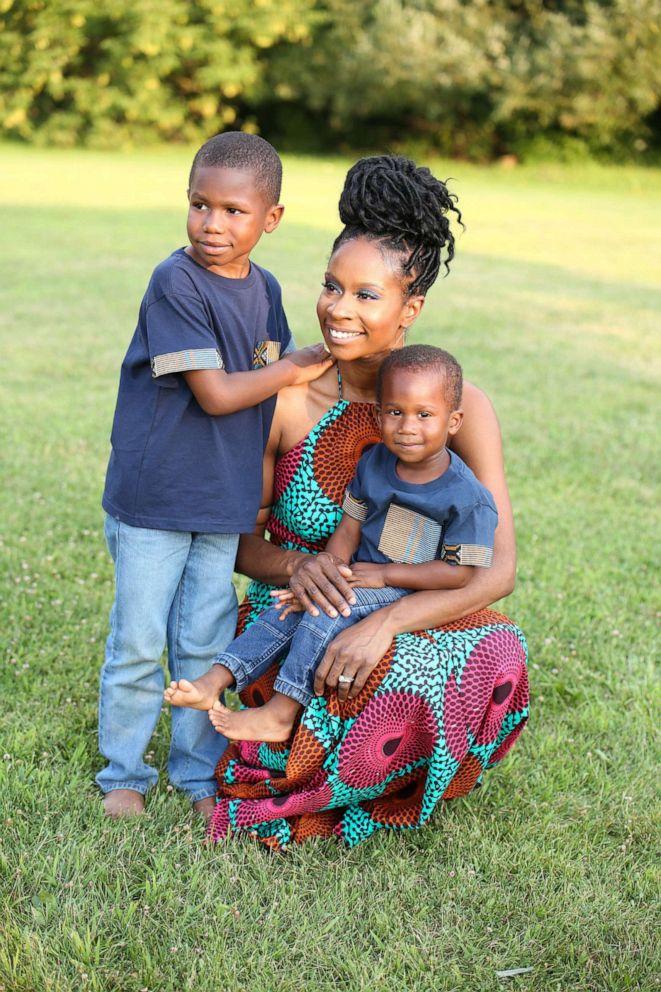
Initially, I thought I was not able to breastfeed because I couldn’t "get" it and it was painful. But I later learned there were larger public policy, institutional and historical problems at play.
So my husband and I decided to change our strategy for the birth of my second son and delivered at a baby-friendly hospital with a fully functional lactation office and staff. But after delivering, we had the same latch issues as I had with my first son.
However, this time, there was someone trained by the International Board of Lactation Consultant Examiners on call to help. They even scheduled follow-up appointments for me to come back in to check the latch and observe. I was beginning to feel better about breastfeeding and finally had the skills necessary to see it through.
As a first generation breastfeeder, though, I was beginning to feel isolated and wanted support from women who looked like me. I needed women in my circle who could directly relate to black culture and family dynamics.
I knew I needed to give back and needed additional support as well, and a friend recommended Black Mothers Breastfeeding Association (BMBFA). I went to BMBFA’s breastfeeding club, and the rest is history.
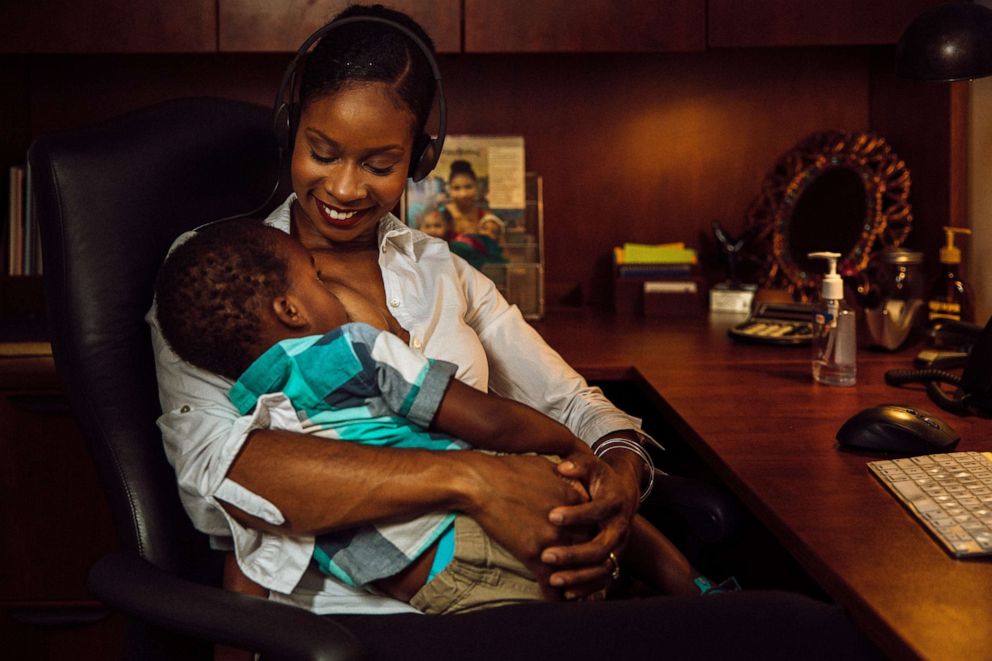
I’ve forged so many amazing relationships, served as a breastfeeding mentor to new moms and met many amazing advocates. This was a crucial part of my breastfeeding success and the success of many other women.
I am happy to share that we are 1,268 days into breastfeeding exclusively. "Extended nursing" has inspired me to educate and advocate for mothers breastfeeding toddlers. We are happy and plan to wean when he is ready.
I also realize and celebrate the diversity of breastfeeding paths, because not everyone will nurse into toddlerhood, and that’s OK. Some women wean earlier, there are exclusive pumping moms and mothers who use a supplementary nursing system – and they are all superwomen.
All in all, my breastfeeding journey has been a beautiful life lesson. I use every opportunity to share my story with others and promote the power of breastfeeding, and I support groups like MomsRising that do the same.
I had to nurse my son in a hot car because of my job.
Jennifer Thomas is the mother of an 11-month-old son in Los Angeles.
It was 85 degrees outside, and I was breastfeeding my 11-month-old son in the car, tears of frustration running down my face.
I was parked in the loading zone outside of the restaurant I worked at, in uniform, sweating and grappling with the anger and helplessness I felt.
My son was suddenly refusing to drink from a bottle or eat solid food while I was at work. Desperate, my husband brought him to me so I could breastfeed him instead of pumping milk on my breaks like I normally do.
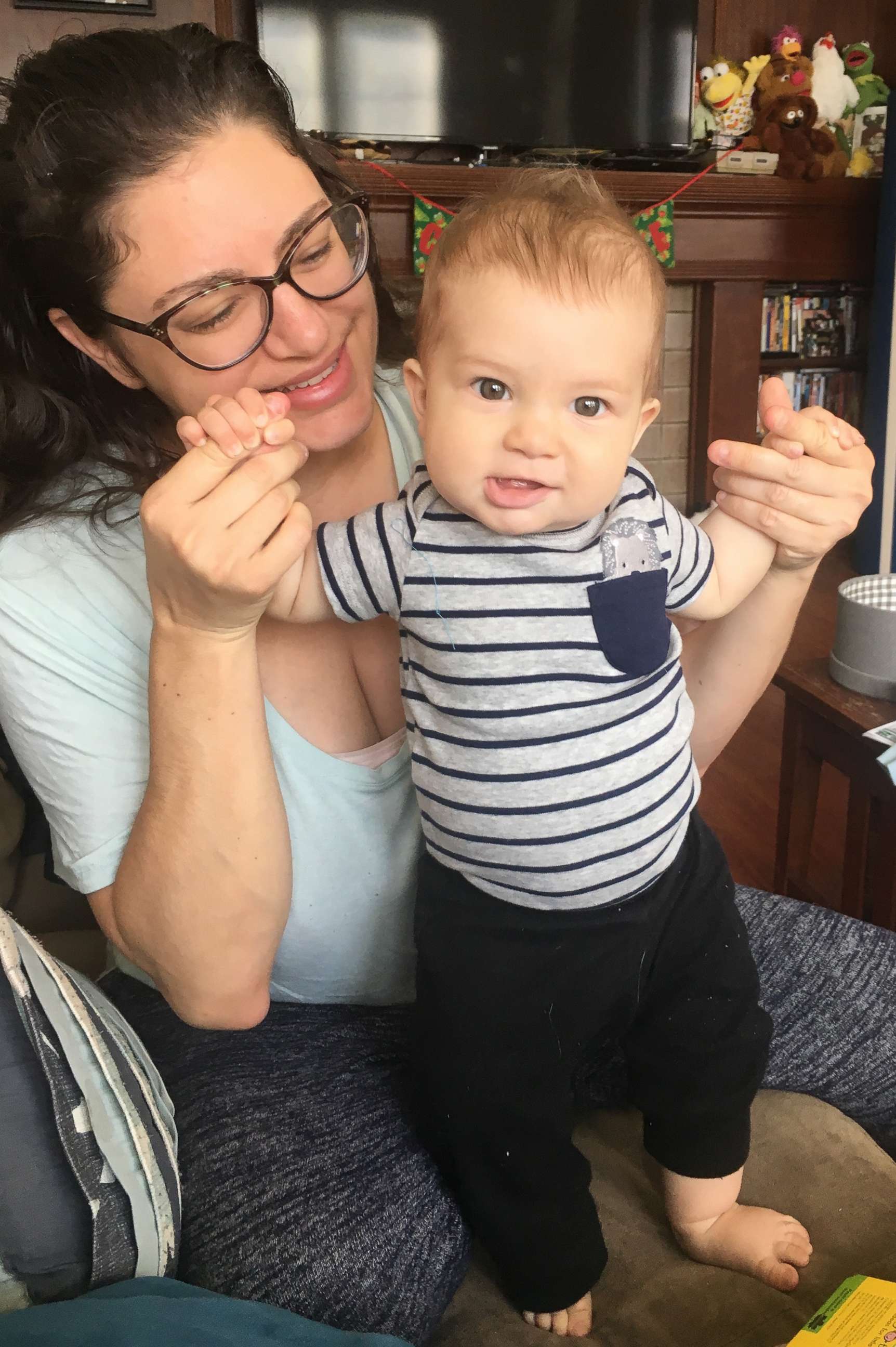
However, my boss wouldn't allow it. He wouldn't even allow me to clock out, change clothes and breastfeed in the lobby, like any other mother. He said I would have to leave the property if I wanted to feed my child.
I stared at him, dumbfounded.
I would have to leave the property? I was being banished from the family-friendly restaurant in Beverly Hills that serves dozens of children every day? I was being treated like a second-class citizen all because I didn’t want my son to be hungry?
I knew my rights as a woman didn’t disappear when I walked through my employer’s doors. But in the moment, I felt like I had no choice but to comply with my boss' arbitrary demand.
So for the next three busy weekend shifts, I nursed my son in a hot car. I felt alone, powerless and stressed.
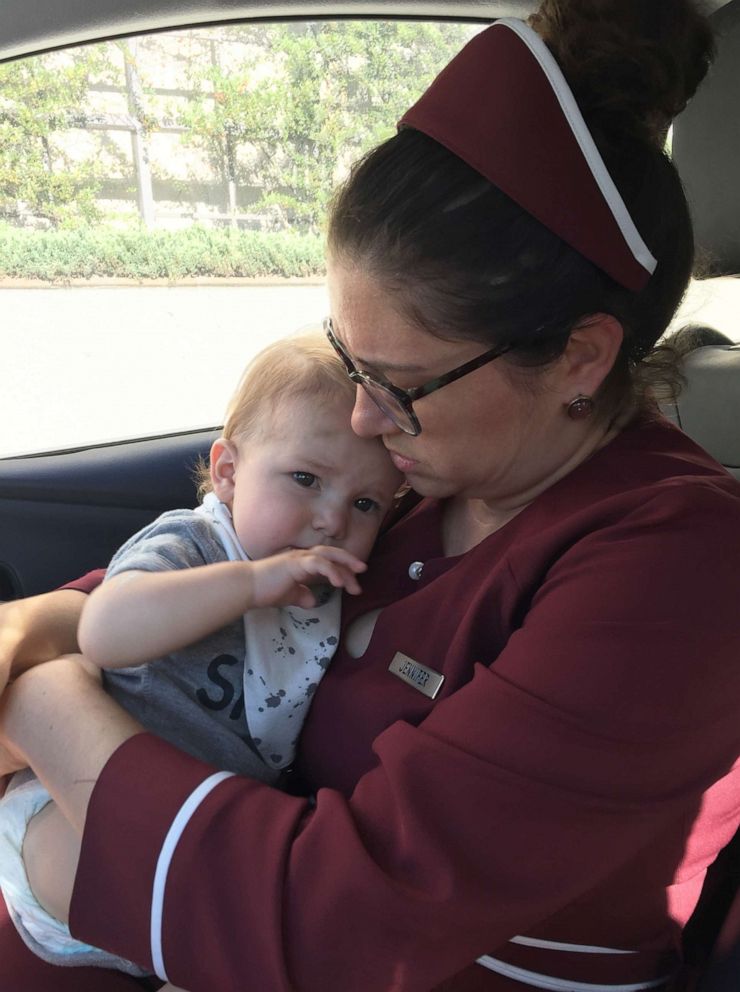
Those feelings quickly shifted to anger and determination.
I reached out to the advocacy group WorkLifeLaw.org. Their staff jumped into action and sent a letter to corporate officials detailing the numerous state and federal laws they were violating.
Surprise, surprise -- I was suddenly allowed to breastfeed my baby in the restaurant!
It’s beyond infuriating that my breastfeeding rights were only recognized and taken seriously once my employer got a whiff of a pending legal action.
I felt empowered fighting for my rights, and I hope other women will too. We owe it to ourselves and our children's health.
Maybe one day we won’t have to fight as hard.


